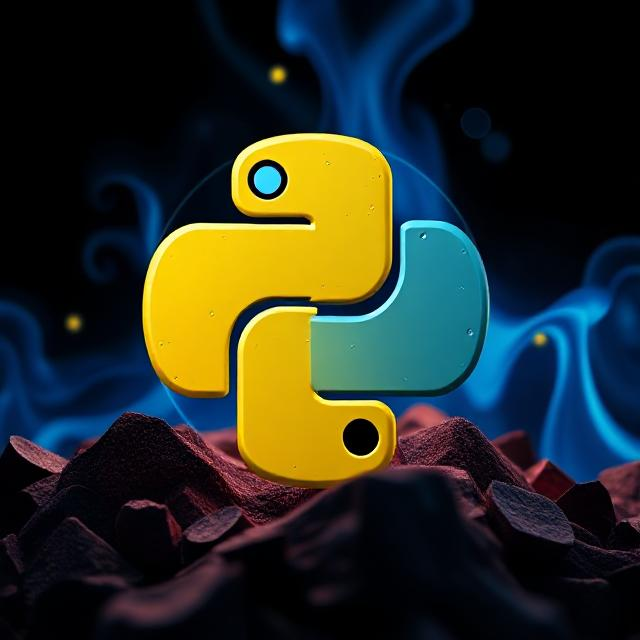Description
A Certified Python & Django syllabus typically covers both foundational Python programming as well as in-depth concepts of Django for web development. Below is a detailed outline of what a comprehensive syllabus for such a course might look like:
Duration : 240 Hrs
Module 1: Introduction to Python
-
1.1 Python Basics
-
Introduction to Python
-
Variables, Data Types (Strings, Integers, Floats, Lists, Tuples, Dictionaries)
-
Operators: Arithmetic, Comparison, Logical, Bitwise
-
Input and Output
-
Type Casting and Type Conversion
-
Control Structures (If-else, Loops: For, While)
-
Functions (Definition, Arguments, Return Values, Lambda functions)
-
-
1.2 Data Structures in Python
-
Lists, Tuples, Sets, and Dictionaries
-
List Comprehensions
-
Strings and Regular Expressions
-
Stacks, Queues, and Linked Lists
-
Sorting and Searching Algorithms
-
Built-in Python Libraries (e.g.,
math,datetime,os,sys)
-
-
1.3 Object-Oriented Programming (OOP)
-
Classes and Objects
-
Instance and Class Variables
-
Methods (Instance, Class, Static)
-
Inheritance, Polymorphism, Encapsulation
-
Abstraction
-
Magic Methods (
__init__,__str__,__repr__, etc.)
-
-
1.4 File Handling
-
Reading and Writing Files
-
Working with CSV, JSON, and other formats
-
File Operations (
open,read,write,close)
-
-
1.5 Error Handling and Debugging
-
Exception Handling with
try,except,else,finally -
Custom Exceptions
-
Debugging Techniques
-
Logging in Python
-
-
1.6 Introduction to Virtual Environments and Package Management
-
Setting up and using
virtualenv -
Installing packages with
pip -
Creating and managing requirements.txt
-
Module 2: Intermediate Python
-
2.1 Advanced Data Structures
-
Collections module:
namedtuple,Counter,deque -
Working with Iterators and Generators
-
Decorators and their Use Cases
-
Context Managers (
withstatement) -
Multithreading and Multiprocessing
-
-
2.2 Python for Web Scraping and API Interaction
-
Using Libraries like
requests,BeautifulSoup,Scrapy -
Making HTTP Requests (GET, POST)
-
Web scraping best practices and ethics
-
Working with APIs: JSON data parsing, RESTful APIs
-
-
2.3 Testing and Documentation
-
Unit Testing with
unittestandpytest -
Test-driven Development (TDD)
-
Writing Docstrings (PEP 257)
-
Documentation tools (Sphinx)
-
-
2.4 Databases in Python
-
SQL Basics
-
Connecting to Databases (SQLite, PostgreSQL, MySQL)
-
Using
sqlite3,SQLAlchemy -
ORM Basics with SQLAlchemy
-
Module 3: Introduction to Django
-
3.1 Django Basics
-
Introduction to Django Framework
-
Setting up Django Project
-
Django’s MVC Architecture (Model-View-Controller)
-
URL Routing and Views
-
Templates and Static Files
-
Working with Django’s Development Server
-
Django Admin Interface
-
-
3.2 Django Models and Databases
-
Django ORM (Object-Relational Mapping)
-
Creating and Managing Models
-
Database Migrations (
makemigrations,migrate) -
QuerySets and Database Queries
-
Relationships: One-to-One, One-to-Many, Many-to-Many
-
-
3.3 Django Forms
-
Handling Forms in Django
-
Django Form Class vs HTML Forms
-
Form Validation
-
ModelForms
-
-
3.4 Django Templates
-
Understanding Django Template Engine
-
Template Tags and Filters
-
Template Inheritance
-
Static Files Management (CSS, JS, Images)
-
-
3.5 Django Views
-
Function-Based Views (FBVs)
-
Class-Based Views (CBVs)
-
URL Patterns and URL Conf
-
Handling HTTP Requests and Responses
-
-
3.6 Django User Authentication and Authorization
-
Django User Authentication System
-
Login and Registration Forms
-
User Profiles and Permissions
-
Customizing User Authentication
-
Access Control (Login Required, Permissions, Groups)
-
-
3.7 Django Middleware
-
What is Middleware?
-
Custom Middleware
-
Using Built-in Middleware
-
Module 4: Advanced Django Concepts
-
4.1 Django REST Framework (DRF)
-
Introduction to Django REST Framework
-
Creating API Endpoints with DRF
-
Serializers and Views
-
Authentication and Permissions in APIs
-
API Documentation (Swagger, Redoc)
-
-
4.2 Django Signals
-
Introduction to Django Signals
-
Working with Pre/Post-Save Signals
-
Using Django’s Built-in Signals
-
-
4.3 Django Testing
-
Writing Unit Tests for Django Views, Models, and Forms
-
Using
TestCasefor DB Testing -
Testing API Endpoints with DRF
-
-
4.4 Django Caching
-
Caching Views and Templates
-
Cache Backends (Memcached, Redis)
-
Queryset Caching
-
-
4.5 Django Security
-
Protecting Against SQL Injection, XSS, CSRF
-
Password Hashing and Management
-
Secure Settings and Environment Variables
-
-
4.6 Deployment and Production Setup
-
Deploying Django on Heroku, AWS, DigitalOcean, or any VPS
-
Setting up PostgreSQL, Nginx, Gunicorn, and other services
-
Continuous Deployment (CI/CD) with GitHub Actions or Jenkins
-
Production Security Settings
-
Module 5: Django Projects and Best Practices
-
5.1 Building a Django Web Application
-
Developing a fully-functional Django project (e.g., Blog, eCommerce, Social Media)
-
Implementing CRUD operations
-
Handling Media Files and File Uploads
-
Using Django REST API in the front-end with React/Vue (optional)
-
-
5.2 Django Best Practices
-
Code Structure and Modularization
-
Handling Static Assets
-
Best practices for managing Django settings (Environment Variables, Debugging)
-
-
5.3 Final Project and Certification Exam
-
Students will work on a real-world project as part of the assessment
-
The project will cover everything learned in the course
-
Submission, review, and certification exam
-
Tools and Libraries
-
Python: Anaconda, Virtualenv, pip
-
Django: Django Rest Framework (DRF), Celery for asynchronous tasks
-
Database: SQLite, PostgreSQL, MySQL
-
Version Control: Git, GitHub/GitLab
-
Deployment Tools: Docker, Heroku, AWS, Nginx, Gunicorn, CI/CD tools
Final Certification
-
The course will culminate in a Final Project and an Exam that will test both theoretical and practical skills in Python and Django.






Reviews
There are no reviews yet.